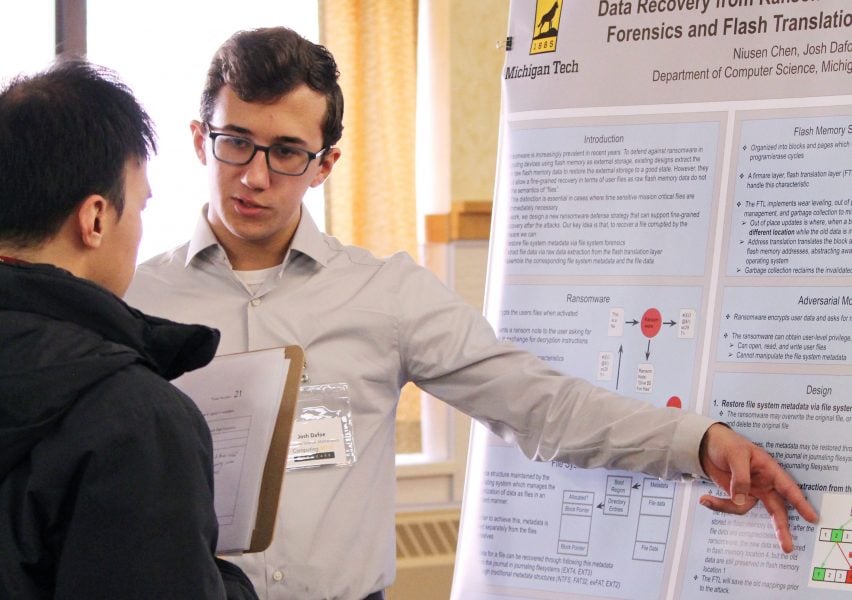
A paper by Josh Dafoe, Job Siy, Niusen Chen, and Bo Chen has received the Best Paper Award at the 2024 EAI International Conference on Security and Privacy in Cyber-Physical Systems and Smart Vehicles (SmartSP ’24). It is the sole best paper award among the 19 accepted papers in the conference, which took place November 7-8 in New Orleans, Louisiana.
The paper is titled, “Hardware-assisted Runtime In-vehicle ECU Firmware Self-attestation and Self-repair.”
Dafoe (mathematics and computer science) and Siy (computer engineering) are Michigan Tech undergraduate students working in the Security and Privacy (SnP) lab at Michigan Tech, which is directed by co-author Bo Chen, associate professor in the Department of Computer Science. Niusen Chen ’23 (PhD in Computer Science) is now an assistant professor at University of Wisconsin-La Crosse.
Paper Abstract
Modern vehicles are largely controlled by many embedded computers, known as Electronic Control Units (ECUs). The increased use of ECUs has brought many in-vehicle security concerns. Specifically, injection of malware into ECUs poses a significant risk to vehicle operation. Indeed, many ECU malware injection attacks have been performed, and much work has been introduced towards mitigating these vulnerabilities. A main defense is for ECUs to perform a self-attestation over their firmware state. However, most current self-attestation solutions do not enable runtime checking due to their high computational cost. Additionally, existing solutions mostly do not incorporate any ECU self-repairing in coordination with the attestation mechanisms.
In this work, we have designed FSAVER, a highly efficient self-attestation and self-repair framework for in-vehicle ECUs. For the self-attestation, we adapt highly efficient spot-checking techniques, so that the firmware can be checked periodically at runtime. To perform these attestations, we rely on the TEE already equipped within each ECU. For self-repair, we take advantage of the isolated flash memory controller (FMC) in the storage device. Specifically, we coordinate it with the update mechanism and self-attestations to guarantee that the latest benign firmware version can always be restored. To realize this while malware is running, a special mechanism has been carefully developed to notify the FMC of the malicious presence.
Citation
Josh Dafoe, Job Siy, Niusen Chen, and Bo Chen. Hardware-assisted Runtime In-vehicle ECU Firmware Self-attestation and Self-repair. 2024 EAI International Conference on Security and Privacy in Cyber-Physical Systems and Smart Vehicles (SmartSP ’24), New Orleans, LA, November 2024.